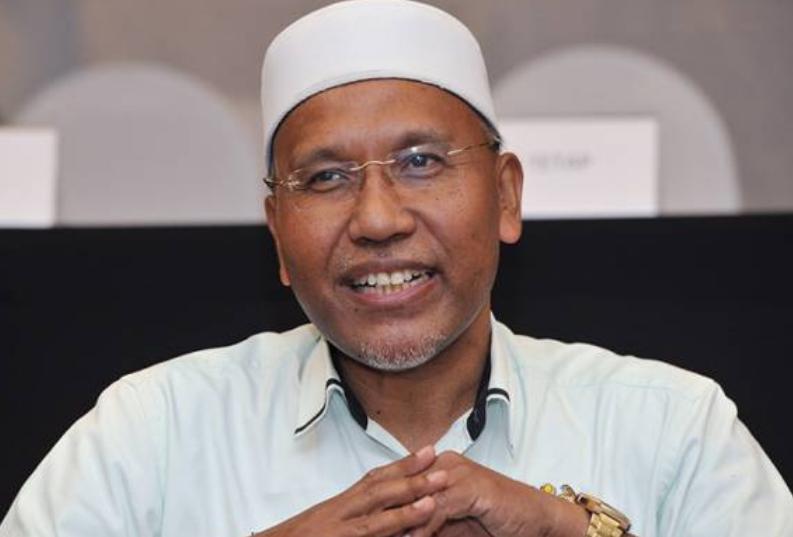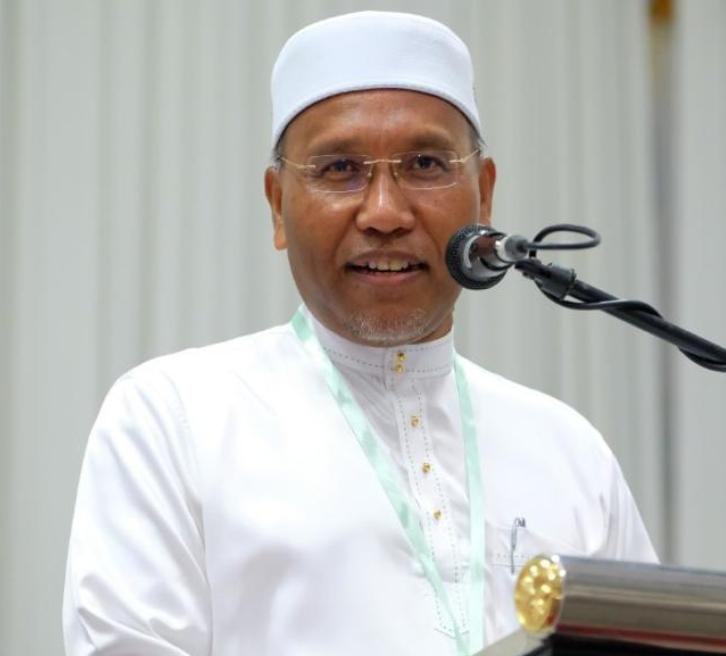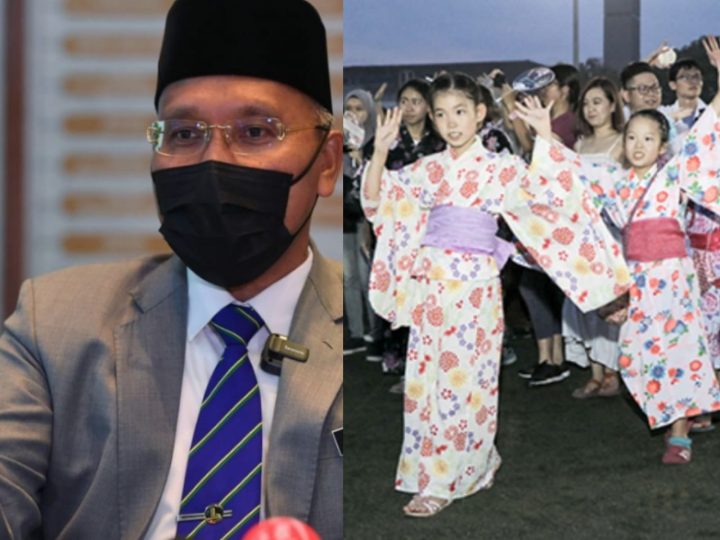Religious Affairs Minister Urges Public To Report Questionable Claims Of ‘Talak’ On Social Media
 Thirsty for JUICE content? Quench your cravings on our Instagram, TikTok and WhatsApp
Thirsty for JUICE content? Quench your cravings on our Instagram, TikTok and WhatsApp

Netizens and members of the public have been prompted to make a report directly to the state or district religious office, in the instance where an issue of questionable or dubious talak surfaces.
The act of casual divorce is now viral on social media, thus threatening the welfare of Muslims.
Religious Affairs Minister in the Prime Minister’s Department, Datuk Idris Ahmad, said that swift action from witnesses could help state or district religious authorities to conduct further investigations more quickly and efficiently.
“Don’t just wait for the religious officials. Report it to us. God willing, we will act upon it,” said Idris, at a press conference after the opening ceremony of the Multaqa Murabbi Ummah (MMU) at the Kedah state level.
The inauguration was officiated by Kedah Menteri Besar Datuk Seri Muhammad Sanusi Md Nor.

Idris also commented on a couple well-known in the local entertainment industry who had their divorce portrayed online via a live broadcast on Facebook.
Last April, DJ Wong or Noor Aziz Johari, 53, ended his marriage with DJ Sal, 43, with a three-talak or religiously irrevocable divorce.
On June 19, the media reported that the couple’s live appearance via Facebook page Sal Bollywood raised various questions, especially for their followers and fans due to some controversies in their relationship.
In the 15-minute live broadcast, DJ Wong, clad in a light blue Malay shirt, apologised and swore before the Holy Quran.
The entertainer was seen crying as he revealed that he had left his house by his own free will as he had a personal problem with his wife.
He also expressed his gratitude as he had been able to survive and break his fast in a safe place for seven days although he only had RM2.70 and a mobile phone to his name.
Following that, he announced to his followers that he will not be appearing on social media again.
Meanwhile, DJ Sal who also made a live broadcast on FB, described her husband as a dayus (irresponsible) man due to his action of disappearing and pronouncing divorce against her publicly.
The pair patched things up 3 months later and are currently still married.
The happenings between the couple provoked various reactions among fans and their followers. While some were happy with the reunion, others questioned the legitimacy of their marriage after DJ Wong’s statement.
Shortly after, DJ Sal was quoted as saying that she had referred the issue of talak to her own family members as well as religious scholars, who informed that what her husband had said before was not considered valid.

When asked whether the couple was toying with religion, Idris said it was probably due to their ignorance, and the matter of talak should not be taken lightly by Muslims in resolving issues.
“I want to say that he is mocking my religion; perhaps it’s his ignorance. He considers the issue of divorce a mere toy,” he stated.
Idris also mentioned that his party along with the Malaysian Syariah Judiciary Department (JKSM) had re-established the Syariah Court Empowerment Committee last Wednesday, in an effort to strengthen the Syariah Court institution.

The Arabic word for divorce is talak which means “freeing or undoing the knot”.
Talak signifies the dissolution of marriage, or the annulment of its legality by the pronouncement of certain words.
As per Sahih Muslim, Book 9, marriage, according to Islam, is a civil contract.
However, the rights and obligations that result from it are so essential to the greater good of the society that it is held in high regard.
Despite the sanctity of the bond of marriage, Islam acknowledges the need for divorce in instances where spousal ties are tainted to the point where a civilised home situation is inconceivable.
Even so, Islam does not believe in unrestricted divorce on trivial and threadbare notions, because any rise in divorce facilities would destabilise home life.
As a consequence, while Islam allows divorce on legitimate grounds, it has taken precautions to implement checks meant to restrict the use of facilities readily provided.


 Get Audio+
Get Audio+ Hot FM
Hot FM Kool 101
Kool 101 Eight FM
Eight FM Fly FM
Fly FM Molek FM
Molek FM

